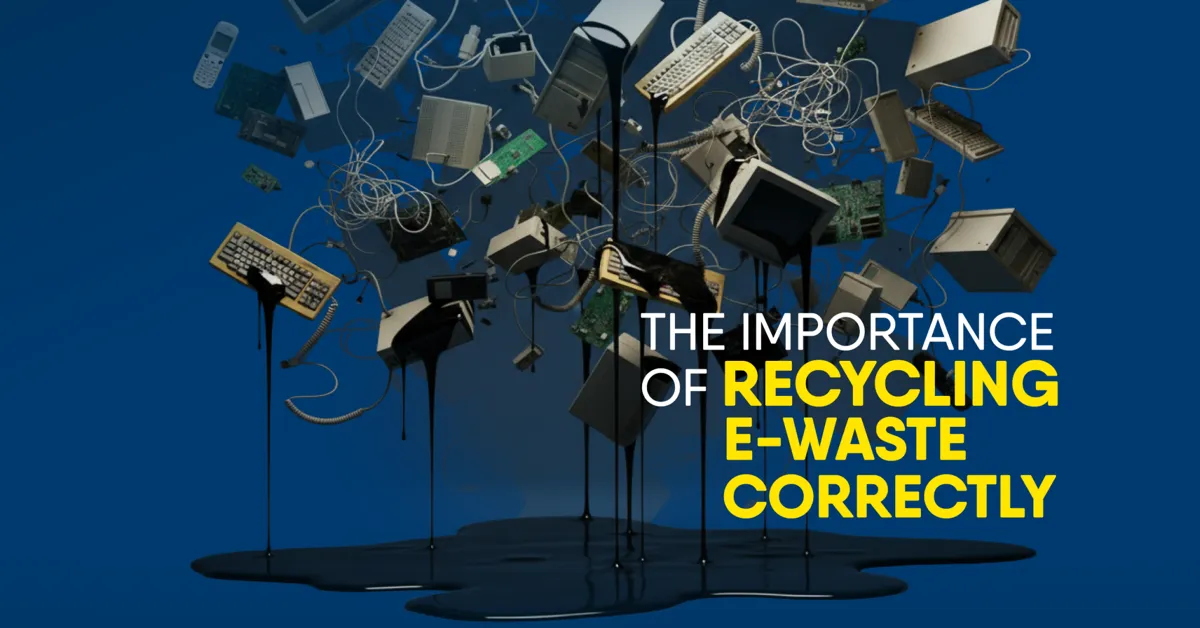CHOOSE
A DIFFERENT TERRITORY

What difference could one old toaster really make? Or that broken hairdryer, kettle or that tangle of wires in your drawer? If you’ve ever thought, “It’s just a small item, it won’t matter”, it’s time to think again.
Listen to this story
Waste Electrical and Electronic Equipment (WEEE)- anything with a plug, cable or battery that has reached the end of its life - is now the fastest-growing waste stream in the world. The UN estimates that more than 62 million tonnes of electrical waste (e-waste) are generated globally each year.
Many people assume that recyclers or councils can simply separate WEEE from general waste – but once it’s mixed in, recovery becomes almost impossible - and the negative impacts of this misinformation might be greater than you think.
When WEEE isn’t recycled, we rely on mining for virgin resources - a process that drives carbon emissions, deforestation and biodiversity loss.
Your old electrical and electronic equipment contains valuable metals and materials including platinum, nickel, cobalt, lithium and other rare elements. Many of these materials are sourced from limited regions, making supply chains vulnerable to disruption and environmental harm.
Recycling helps reduce this pressure. For example, wires and cables provide a valuable source of copper - and recycling copper uses up to 85% less energy than mining new material, making it both cleaner and more cost-effective.
Incorrectly disposing of WEEE can cause harm much closer to home. Items that end up in landfill can release lead, mercury and other toxic substances into the soil and water. Lithium-ion batteries - found in everything from electric toothbrushes to laptops - can also ignite if damaged or punctured.
To help prevent fires across the waste industry, the public are urged to dispose of batteries and small tech items at designated battery collection points - such as retailers, supermarkets or local recycling centres - and never in household bins.
By recycling these materials correctly, you help approved recycling centres to follow the strict safety standards and proactive processes that are in place to prevent both fires and hazardous materials getting into our environment.
At EMR, we are proud to operate the UK’s largest collection and treatment network for WEEE.
Our teams and partner network ensure that metals, plastics and other critical materials are recovered safely and returned to manufacturers. This supports a truly circular economy and offers customers a fair return for their material.
It’s why so many councils, businesses and individuals trust EMR to manage their small mixed WEEE and large domestic appliances (LDAs) responsibly, giving customers a reliable and sustainable way to recycle.
Learn more about WEEE recycling with EMR and start your recycling journey today. Together, we can turn today’s electrical waste into tomorrow’s technological innovation.